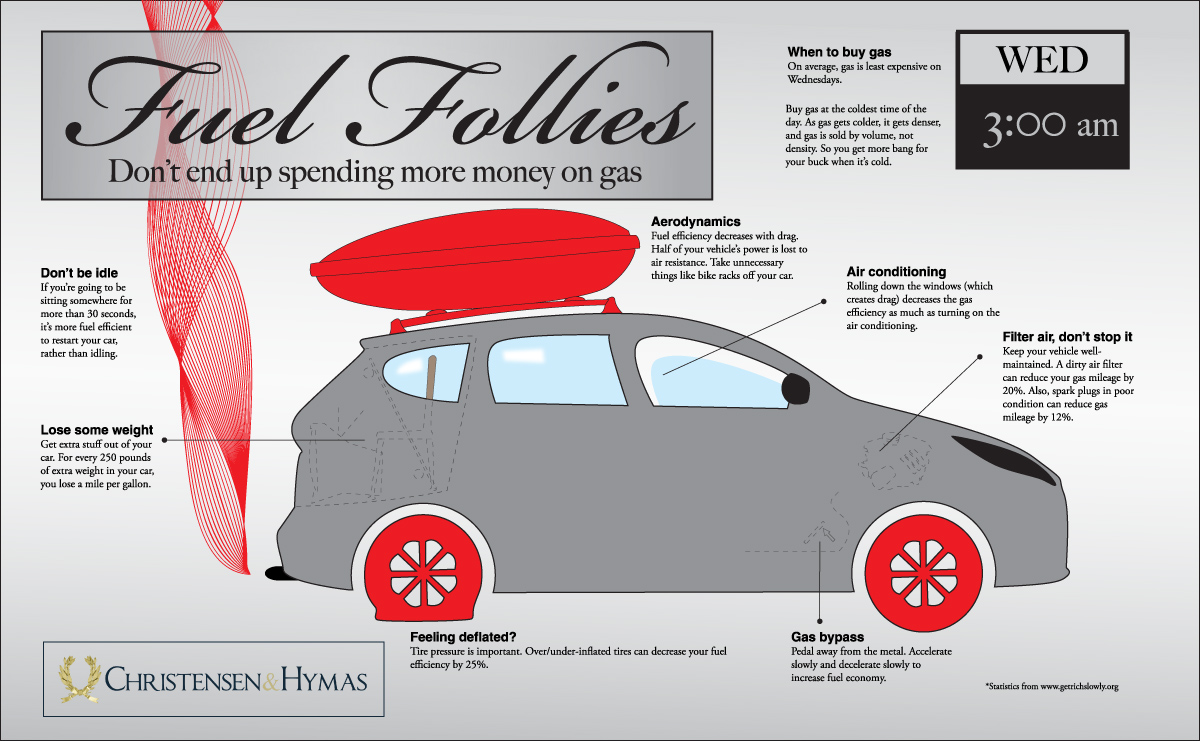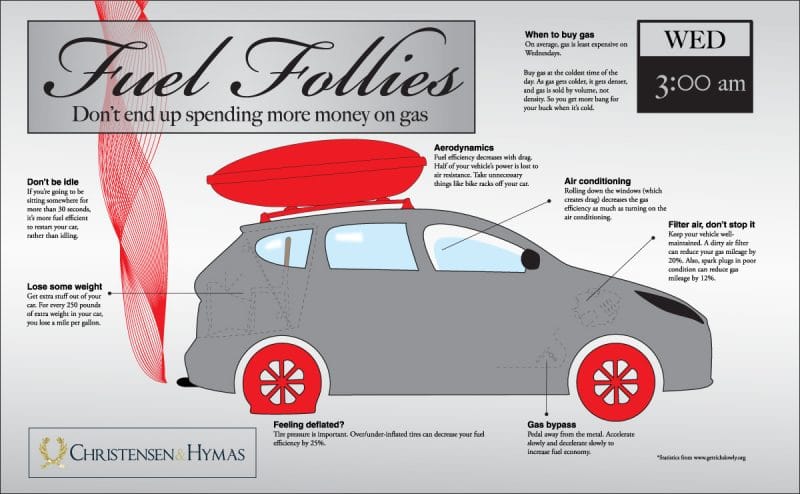Most people know that the faster you drive, the more you gas your car uses, but there are several other factors that contribute to extra gas being used. Getrichslowly.org has a nice list of tips that help you save money on gas. Here are a few.

Table of Contents
1. Don’t be idle
Many people have the common misconception that restarting your car requires more gas than idling. However, this is true only if you plan on idling for less than 30 seconds. If you plan on waiting in your car for more than 30 seconds, turn your engine off. This will save you gas and is better for the environment.
2. Lose some weight
Taking extra items out of your car will save you money on gas. For every 250 pounds of extra weight, you lose a mile per gallon.
3. Check your tire pressure
Over or under inflated tires can reduce your fuel efficiency by 25%. If your car is newer, the recommended pressure should be on a sticker on the driver’s door. Most car tires should be between 32-35 psi. You should check your tires when they have sat for awhile, as driving increases tire pressure.
Another important thing to remember is that you should not inflate your tires to the number on the tire itself, as this is not the recommended pressure, but the maximum the tire can hold.
4. Gas bypass
Pedal away from the metal. Accelerating and decelerating too quickly will decrease your fuel economy. Try and keep your rpms low.
5. Car maintenance
Dirty air filters can decrease your gas mileage by 20%; poor spark plugs can reduce it by 12%.
Air filters need to be changed about every 20,000-30,000 miles, maybe more often if driving conditions are unfavorable (if you are driving on dirt roads often, etc.).
There is some controversy over whether or not poor spark plugs cause a decrease in fuel efficiency, with some companies stating that poor spark plugs can decrease fuel efficiency up to 30%, and others saying modern cars’ fuel economy is not affected by poor spark plugs because of the electronics.
One thing everyone can agree on, though, is that poor spark plugs will cause problems on your vehicle. It is important to have spark plugs checked every time you have your car serviced, which should be about every six months.
6. Air conditioning
Rolling down the windows decreases gas mileage as much as turning on the air conditioning, because it creates drag. Of course, in the summer months, the air conditioning must be used, but if it’s not necessary, don’t keep the windows down when you drive.
7. Aerodynamics
Again, drag decreases fuel efficiency, and traveling with unnecessary items on your car like bike racks creates drag.
8. Buying gas
Buying gas on Wednesdays will save you money on gas over time, as it is least expensive on this day on average.
If you buy gas on the coldest time of the day you will also save money on gas, as gas gets denser as it gets colder. Since it is sold by volume, not density, you will get more gas for your money.
9. Don’t Speed
The benefits of not speeding include avoiding tickets, increasing the safety of you and other drivers, decreasing the wear and tear on your vehicle, and of course, saving money on gas.
The US Department of Energy states that “each 5 mph you drive over 50 mph is like paying an additional $0.25 per gallon for gas.”
According to drivers.com, speeding is the number two cause of car accidents in America, second only to distracted driving. If saving gas isn’t a big enough incentive for you to decrease your speed, saving lives (including your own) should be.
Many of these tips may seem unavoidable, but do the best you can, and you will be able to save money on gas.
